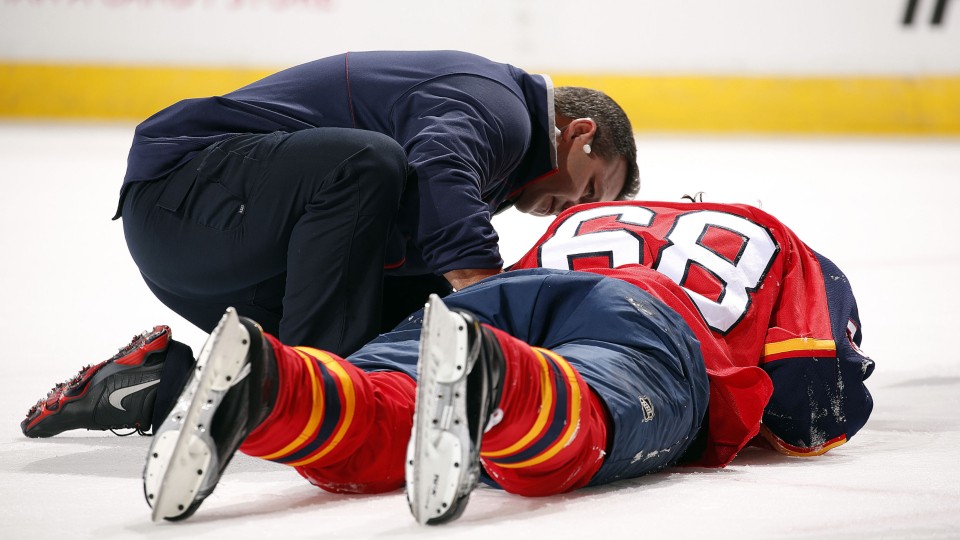Athletic Trainers
Athletic Instructor, Athletic Trainer, Certified Athletic Trainer, Personal Trainer
What they do:
Evaluate and treat musculoskeletal injuries or illnesses. Provide preventive, therapeutic, emergency, and rehabilitative care.
On the job, you would:
- Conduct an initial assessment of an athlete's injury or illness to provide emergency or continued care and to determine whether they should be referred to physicians for definitive diagnosis and treatment.
- Assess and report the progress of recovering athletes to coaches or physicians.
- Care for athletic injuries, using physical therapy equipment, techniques, or medication.
Knowledge
Health
- medicine and dentistry
- therapy and counseling
Business
- customer service
- administrative services
Math and Science
- psychology
- biology
Arts and Humanities
- English language
Skills
Basic Skills
- listening to others, not interrupting, and asking good questions
- keeping track of how well people and/or groups are doing in order to make improvements
Social
- understanding people's reactions
- looking for ways to help people
Problem Solving
- noticing a problem and figuring out the best way to solve it
Abilities
Verbal
- communicate by speaking
- read and understand what is written
Ideas and Logic
- notice when problems happen
- make general rules or come up with answers from lots of detailed information
Hand and Finger Use
- hold or move items with your hands
- keep your arm or hand steady
Personality
People interested in this work like activities that include helping people, teaching, and talking.
They do well at jobs that need:
- Empathy
- Stress Tolerance
- Self-Control
- Social Orientation
- Cooperation
- Integrity
Technology
You might use software like this on the job:
Spreadsheet software
- Microsoft Excel
Presentation software
- Microsoft PowerPoint
Data base user interface and query software
- Database software
- Premier Software Simtrak Mobility
Education
Education: (rated 5 of 5)
master's degree or
bachelor's degree
usually needed
bachelor's degree
usually needed
Job Outlook
Bright
New job opportunities are very likely in the future.
Explore More
- Exercise Physiologists
- Exercise Trainers & Group Fitness Instructors
- Physical Therapist Assistants
- Recreational Therapists
- Sports Medicine Physicians
You might like a career in one of these industries:
See more details at O*NET OnLine about Athletic Trainers.





